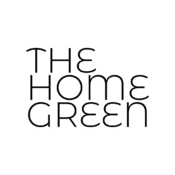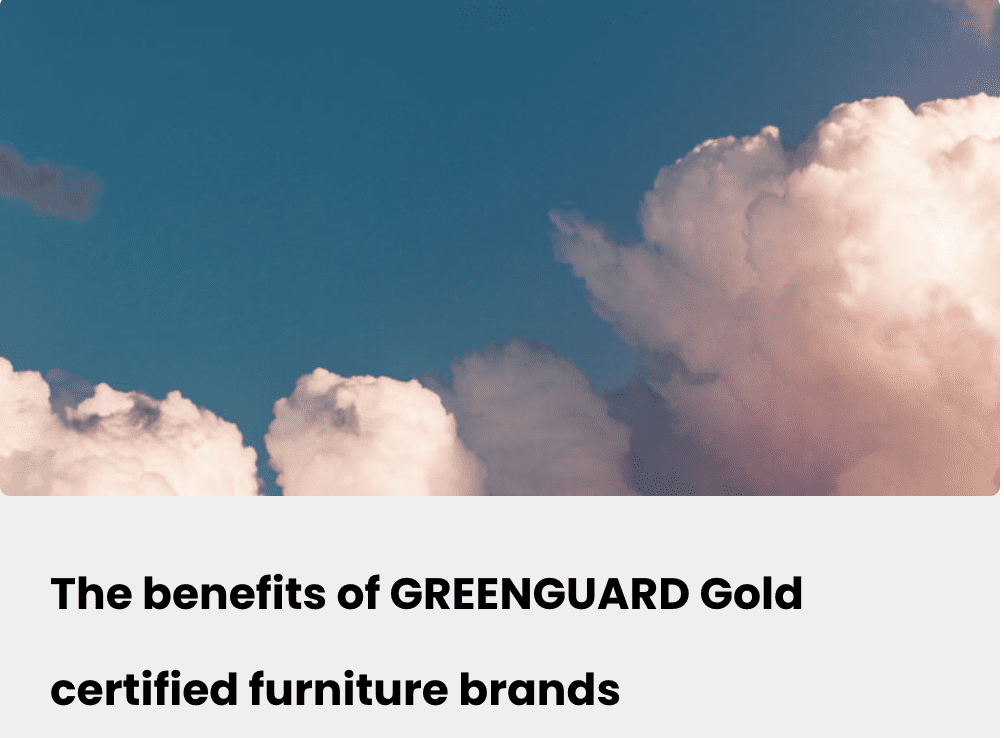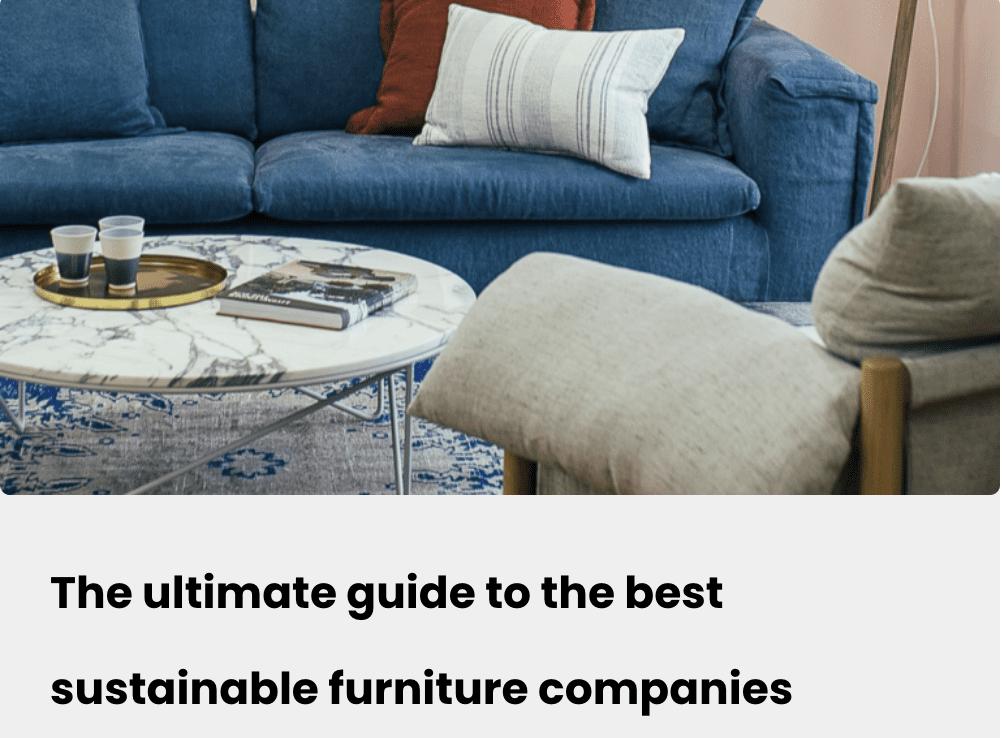In this post: We explore OEKO-TEX® certification and how it can help you create a healthier and more sustainable home.
Sustainable certifications provide a great service to consumers, giving them an unbiased perspective on safety and other important attributes of the products we put in our homes. We’ve written about GREENGUARD and GREENGUARD gold certification in the past: two endorsements that verify low air quality impact of a product. OEKO-TEX® is another important label to be on the lookout for.
What is OEKO-TEX®?
OEKO-TEX® is a textile certification that verifies that fabrics and other woven goods meet strict standards when it comes to the presence of harmful substances. These include things like heavy metals, formaldehyde, harmful dyes, or other chemicals that could negatively impact your health.
Certification requires that products are tested not only in their finished state but also throughout the manufacturing process. Any product certified by OEKO-TEX® can use that label for up to one year.
What types of products are certified by OEKO-TEX®?
The list of what’s possible to certify is fairly broad. The most commonly certified product include:
- Fabrics including woven, knitted, or non-woven types
- Yarn and thread
- Clothing
- Home goods such as sheets, curtains, towels, and tablecloths
- Personal Protective Equipment such as masks, gloves, and protective clothing
- Textile accessories and trims like ribbons, interlining, lace, etc
LEED sets standards that a building has to achieve in order to receive certification. When a home or commercial building is reviewed for certification, it is given points for applicable sustainable features. Based on the total number of points it receives, it is given a specific category including LEED certified, followed by Silver, Gold, with Platinum status being the highest.
In summary, while you could describe a LEED certified home as a green home, not all green homes are or would qualify for LEED certification.
What are the types of certifications?
There are several types of OEKO-TEX® certifications and programs to be on the lookout for, each with a different objective and set of standards. They include:
OEKO-TEX® STANDARD 100
This is the OEKO-TEX® certification you may have seen the most often. It verifies that a textile product is within the testing criteria when it comes to the absence of harmful substances. In order to receive certification, products will be tested at all stages of production, from raw materials to finished state.
On its website, OEKO-TEX® explains:
If a textile article carries the STANDARD 100 label, you can be certain that every component of this article, i.e. every thread, button, and other accessories, has been tested for harmful substances and that the article therefore is harmless for human health.
What are the STANDARD 100 product classes?
OEKO-TEX® states that in principle, any textile product could be considered for OEKO-TEX® evaluation. In that evaluation process, OEKO-TEX® considers the specific uses of that product to determine it’s certification requirements. They separate these standards into 4 classes:
Product class 1


This covers products intended for use by children and babies up to 36 months. It includes clothing, children’s bedding, soft toys, and other products that will have sustained contact with skin.
Product class 2
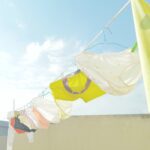

Products in this class have less prolonged contact with the skin versus those in class 1 and include things like underwear, shirts, and other clothing. This is also the class that covers bedding intended for adults.
Product class 3


In this grouping, the products have less direct contact with skin than in classes 1 or 2. This includes things like outerwear.
Product class 4
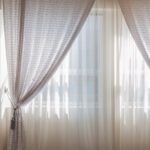

This category is the one that aligns the most closely with interior design. It covers items that do not typically have direct contact with skin such as curtains and upholstery.
OEKO-TEX® LEATHER STANDARD
The OEKO-TEX® Leather STANDARD takes the principles for the OEKO-TEX® STANDARD 100 and applies them to the certification of leather goods. This includes finished and semi-finished leather goods such as clothing, shoes, and accessories.
OEKO-TEX® ORGANIC COTTON
As the name implies, this certification pertains exclusively to cotton products and verifies that cotton products are free from toxic substances.
Specifics requirements include:
- Cotton that is grown using organic farming. These farms must use natural cultivation processes in stead of (synthetic) pesticides, or genetically modified organisms (GMOs).
- Specific environmental standards. These include restricting dangerous chemicals, heavy metals, and dyes and meeting specific production waste specifications.
- Social responsibility is also considered for OEKO-TEX® Organic Cotton certification. This includes making sure the cotton is made in a facility that is safe and does not utilize child or other forced labor
OEKO-TEX® MADE IN GREEN
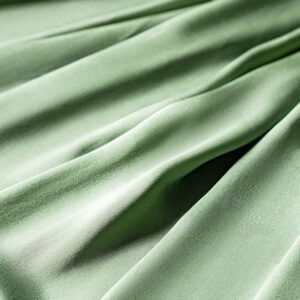

OEKO-TEX® MADE IN GREEN builds upon OEKO-TEX® STANDARD 100. It considers the presence/absence of harmful substances, factors of sustainability and fair labor, and layers on attributes related to the facility in which an item was manufactured. The OEKO-TEX® Made in Green label validates that social and environmental standards were observed in a particular facility or manufacturing plant.
OEKO-TEX® STeP
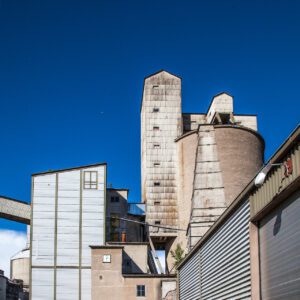

When I first learned about OEKO-TEX® STeP (Sustainable Textile Production), I was slightly confused because it seemed so similar to OEKO-TEX® Made in Green. Once I dug in a little, however, the difference became clear. While both certifications focus on the attributes of the facility where a product is made, OEKO-TEX® Made in Green is a certification that is given to a product while OEKO-TEX® STeP is an endorsement given to the factory itself.
OEKO-TEX® RESPONSIBLE BUSINESS
The responsible business certification is unique among the credentials that OEKO-TEX® offers in that it pertains to the business practices of an organization. This includes how comprehensively a company considers social and environmental responsiblity in the way they run and make decisions for their business. OEKO-TEX® explains the objective of this certification as follows:
“The goal of RESPONSIBLE BUSINESS certification is the long-term implementation of due diligence measures with regard to human rights and the environment in the textile and leather industry.”
OEKO-TEX® ECO PASSPORT
OEKO-TEX® eco passport relates only to chemical suppliers and verifies that their products do not contain harmful substances and comply with OEKO-TEX® standards.
OEKO-TEX® DETOX TO ZERO by OEKO-TEX®
You’ll be less likely as a consumer to come across this program. Still, it’s worth mentioning that OEKO-TEX® not only certifies products but is also committed to helping companies understand how to make their products safer and more sustainable. OEKO-TEX® Detox is a program that walks textile and clothing companies through the process of removing harmful substances and practices from their operations.
Where to find OEKO-TEX® furniture and home goods
Sabai
Sabai uses OEKO-TEX® STANDARD 100 certified recycled velvet. It’s also made from 100% recycled bottles and are GREENGUARD certified which is pretty darn cool.
The Citizenry
The Citizenry has many OEKO-TEX® certified bedding and bath items in their product assortment.
West Elm
West Elm features OEKO-TEX® certified products, although it’s a little difficult to quickly identify the ones that meet this standard. I couldn’t find a way to filter by OEKO-TEX® but when I filtered by “Organic” and then read through the item description, I found one where OEKO-TEX® was specifically listed. Many had GOTs certifications, as well and it’s entirely possible I missed other OEKO-TEX® certified products!
Pottery Barn
Pottery Barn, Pottery Barn Teen, and Pottery Barn Kids feature OEKO-TEX® certified bedding. To find the products that are OEKO-TEX® STANDARD 100 certified, select the category that you are interested in and then select “OEKO-TEX®” as a filter.
Medley
Medley uses OEKO-TEX® certified wool as a filling component in their chairs and sofas.
“Our OEKO-TEX® STANDARD 100-certified wool is gently shorn from grass-fed, crossbred sheep, and sourced from farmers who genuinely care for the environment, encourage healthy ecosystems, and follow the ‘five freedoms' for animal welfare.”
Crate & Barrel and CB2
Crate & Barrel and CB2 both offer a number of OEKO-TEX® certified bed linens and towels in their collections. CB2 also has curtains that are listed to be OEKO-TEX® certified.
Ecobalanza
Ecobalanza specifies that they use OEKO-TEX® certified upholstery fabrics on their products which are custom-made to customer specifications.
Perch Furniture
Perch Furniture offers customers the opportunity to build a sofa to their exact specifications and this includes OEKO-TEX® certified textiles.
A note about checking product labels
There is a particular attribute of the OEKO-TEX® certification that is particularly important to you, make sure that the item you are purchasing specifies that it has the corresponding certification. Because OEKO-TEX® covers a broad array of certifications in the textile industry, there can be some confusion around the details of a particular item.
For example, while OEKO-TEX® will evaluate the sustainability of a manufacturing facility, one of the most common OEKO-TEX® certifications, the STANDARD 100, does not cover facility-level attributes. You will need to explore further to understand that part of a product’s eco-friendliness.
FAQs
Does OEKO-TEX® Certification Mean the Product is Organic?
No, not all OEKO-TEX® certifications indicate that a product is organic. The exception is OEKO-TEX® Organic Cotton which does have organic farming as one of its requirements. Beyond OEKO-TEX® Organic Cotton, some OEKO-TEX® certified products may contain organic materials, but the certification itself does not guarantee organic status.
To determine if a product is organic, it is necessary to look for specific organic certifications or labels, such as the Global Organic Textile STANDARD (GOTS) or the Organic Content Standard (OCS), which have stringent requirements for organic fiber production and processing.
What Products Can Be OEKO-TEX® Certified
The OEKO-TEX® certification can be applied to a wide range of textile and related products. Here are some examples of products that can be OEKO-TEX® certified:
- Fabrics: This includes various types of fabrics used in clothing, home textiles, upholstery, bedding, and more. It covers materials like cotton, silk, linen, wool, synthetic fibers, and blends.
- Clothing and Apparel: OEKO-TEX® certification can be obtained for finished garments such as shirts, pants, dresses, jackets, underwear, socks, and other textile-based clothing items.
- Accessories: Textile accessories like hats, scarves, gloves, belts, ties, and handbags can also undergo OEKO-TEX® certification.
- Home Textiles: OEKO-TEX® certification can be obtained for items used in home decor, such as curtains, drapes, upholstery fabrics, cushion covers, bed linens, towels, and tablecloths.
- Personal Textile Items: This category includes textile products that come into direct contact with the skin, such as towels, bathrobes, bedding, and sleepwear.
- Children's Textiles: OEKO-TEX® certification is particularly relevant for textile products intended for babies and children, including clothing, bedding, blankets, and toys.
- Footwear: OEKO-TEX® certification can be applied to various types of footwear, including shoes, sneakers, slippers, and socks.
- Technical Textiles: Industrial and technical textiles used in sectors like automotive, healthcare, sports, and outdoor applications can also be eligible for OEKO-TEX® certification.
Other articles you may enjoy
Free tips and inspiration in your inbox
Enter your email address below to receive the latest news from The Home Green.
